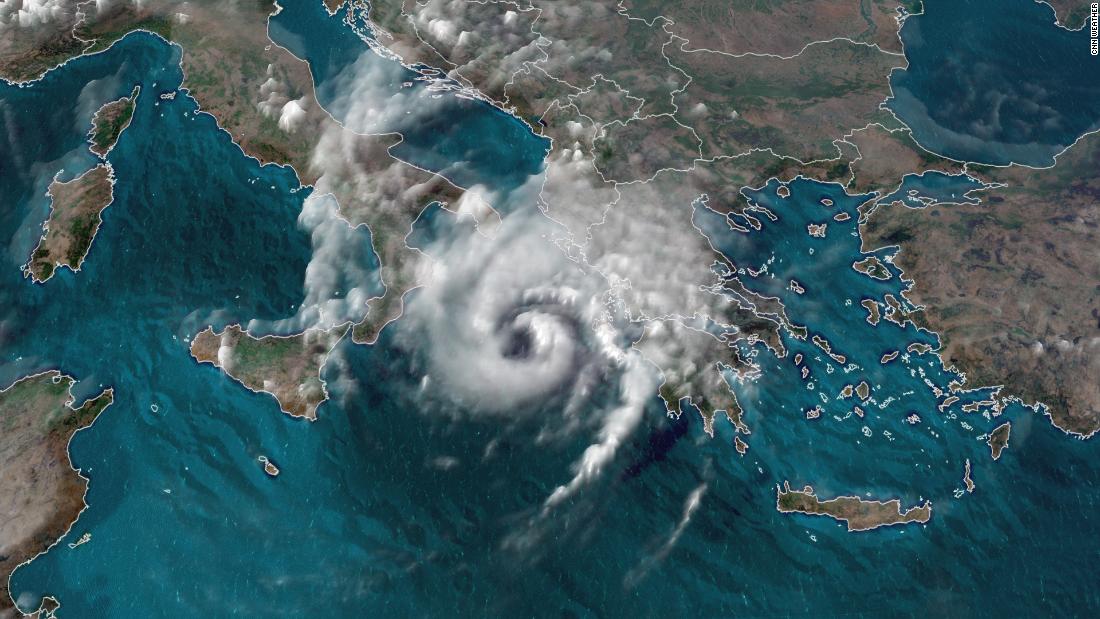‘Medicane,’ a rare, hurricane-like storm in the Mediterranean, to hit Greece

This type of storm, often called a “medicane” (Mediterranean + hurricane), has features similar to hurricanes and typhoons. Medicanes can form over cooler waters and usually move from west to east, whereas hurricanes move from east to west.Named Ianos, the medicane is set to impact Western Greece on Friday and could end up being one of the strongest medicanes on record. The storm is showing signs of strengthening and organizing on satellite imagery as it takes on an appearance that resembles a hurricane you’d expect to find in the Caribbean.Ianos currently has winds of 90 kph (60 mph), but winds are expected to increase before landfall, and could reach hurricane-force (winds of 120 kph-75 mph or greater) on Friday when it reaches southern and western Greece. Sea surface temperatures are also currently running warmer in that part of the Mediterranean, making it easier for the storm to gain strength.According to European Storm Forecasters “a cyclone of hurricane strength will affect western Greece on Friday. This will cause extremely high rainfall amounts of up to around 400 mm (1.3 inches) in some areas.” Winds will also be a concern, especially if the systems maintains strength, while slowing down, as some of the models suggest. Some models are forecasting the storm to have sustained winds of at least 125 kph (77 mph) with gusts of 180 kph (112 mph). Strong winds for a longer duration will result in more widespread hazards and damage. In fact, Greece’s national meteorological service has issued a top level Red Alert for winds, rain and storm conditions due to the medicane.Climate change to make medicanes worseAccording to a study published in 2011, only one or two medicanes occur per year. These powerful storms usually happen during the months of September and October, when sea surface temperatures in the Mediterranean are still quite warm, although they can occur at any time of year.Warmer sea surface temperatures in the Mediterranean can allow the storms to take on more tropical appearances and characteristics, increasing the wind speeds and making the storms more intense. Studies have shown that medicanes are likely to become a bigger problem as the planet warms thanks to human-caused climate change — with stronger winds and heavier rainfall. Similar storms in 2018 and 2019 struck Greece and Egypt respectively, each dumping many months’ worth of rain and resulting in deadly flooding. CNN’s Judson Jones also contributed to this story







